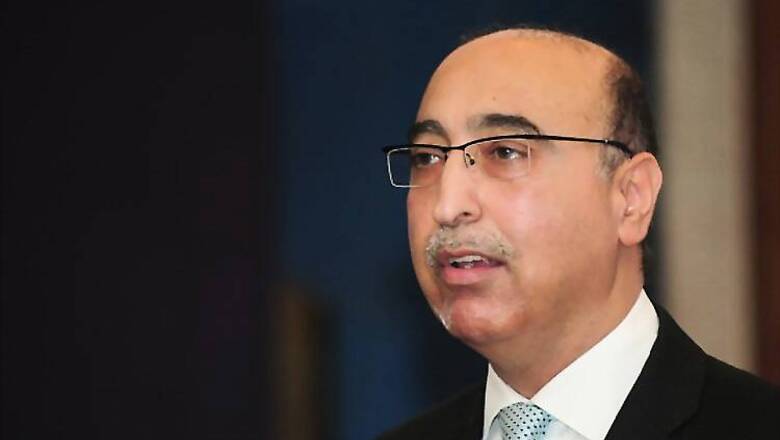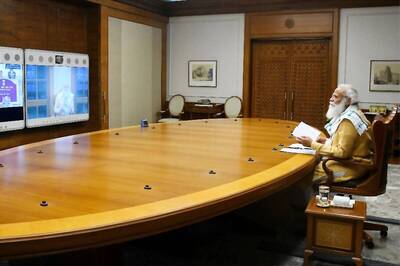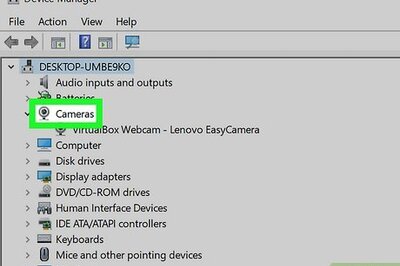
views
New Delhi: As Kulbhushan Jadhav is continuing to dominate headlines, Pakistani envoy Abdul Basit evaded questions from the media on the death sentence to the Indian National.
Basit was repeatedly asked by the media persons to react on the issue of Kulbhushan Jadhav, but he refused to comment.
Yesterday, India summoned Pakistan High Commissioner Abdul Basit soon after the news of death sentence to Kulbhushan Jadhav by a Pakistan Army Court came in and said it will be regarded a “premeditated murder” because there was no fair trial in the case.
Jadhav was awarded death sentence after a shoddy trial by the Field General Court Martial under the Pakistan Army Act 1952. Pakistan has not answered as to why Jadhav, who was arrested on espionage charges, was denied a civilian court trial, and why did Pakistan’s Foreign Policy Chief Sartaj Aziz go back on his words that there was “insufficient evidence” against Jadhav.
Ever since Jadhav was arrested by Pakistan in March 2016, India has repeatedly asked for consular access to Jadhav as per the provisions of the bilateral Consular Access Agreement, but the permission was never granted. On the contrary, the whole process was kept a secret against the international norms. Even at the peak of Cold War, the US and Russia conducted open trials of spies.
According to Section 105 of the Pakistan Army Act, when a person is awarded death sentence, there must be an absolute majority of votes. If there is a difference of opinion, the decision goes in favour of the accused. However, there was no such clarity in the case of Jadhav.
Military courts in Pakistan were allowed to extend their jurisdiction for speedy trial of terror cases after the Peshawar school attack through amendments to the Pakistan Army Act 1952. These amendments were met with much debate, but military courts have already weaved themselves into the fabric of Pakistan’s criminal justice system.
Since February 2015, a total of 274 individuals have been convicted in military courts. So far, the army has sentenced 161 individuals to death, 12 of whom have been executed and 113 have been given jail terms (mostly life sentences). There are roughly 11 military courts that have been set up across Pakistan; three in Khyber Khyber Pakhtunkhwa, three in Punjab, two in Sindh and one in Balochistan.




















Comments
0 comment